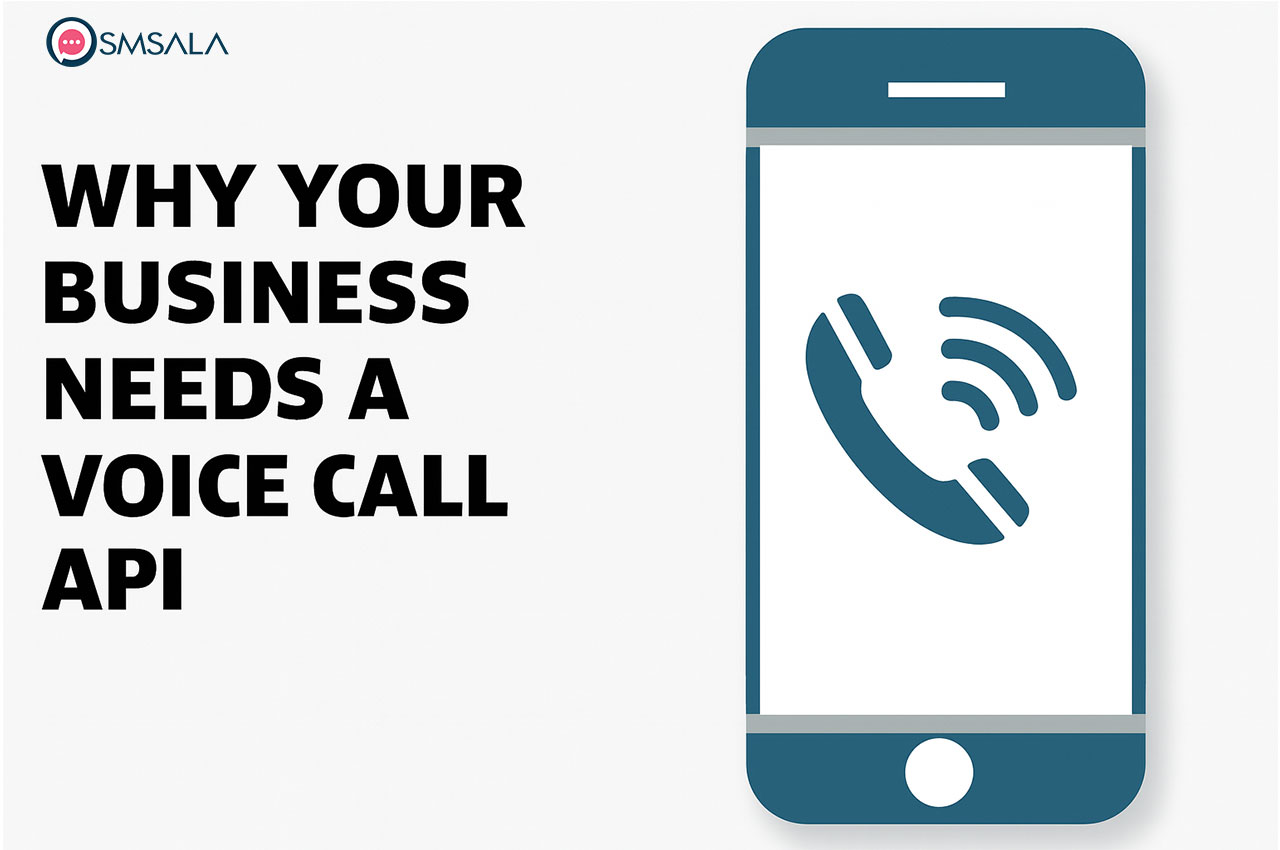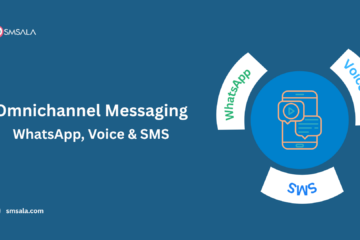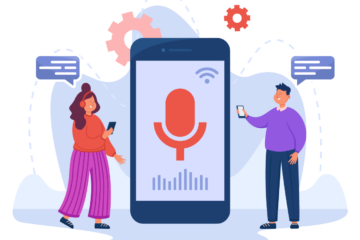Have you ever wondered why some businesses manage to stay top-of-mind with their customers, while others get forgotten soon after the first purchase? It often boils down to how they communicate. Imagine calling your local grocery store, and instead of waiting endlessly on hold, you’re greeted by a smart voice call that confirms your order, or notifies you that your delivery is five minutes away. That’s the magic of a Voice Call API in action — turning what could be a tedious experience into something refreshingly personal and efficient.
In this article, we’ll explore why your business needs a Voice Call API, how it works alongside WhatsApp API CRM Integration, and why thousands of enterprises across industries are making it a core part of their customer engagement toolkit. We’ll sprinkle in relatable examples, real-world scenarios, and analogies to make sure you walk away with a crystal-clear understanding.
What is a Voice Call API?
Let’s start simple. A Voice Call API is like giving your software the ability to talk on the phone. Instead of relying on manual calls or setting up expensive call centers, your app or CRM can initiate automated voice calls to customers.
For instance, an e-commerce platform might use a Voice Call API to confirm a high-value order, or a bank might use it to verify a transaction by calling the customer instantly. This not only builds trust but also prevents fraud.
When combined with WhatsApp API CRM Integration, businesses unlock even richer communication flows. Imagine sending a WhatsApp message first, then following up with a voice call if there’s no response — all managed automatically from your CRM.
Why Your Business Needs a Voice Call API
1. Customers Want Instant, Personal Communication
Think about the last time you ordered food online. Would you rather get a generic SMS that your order is placed, or a short, polite call saying, “Hi David, your order’s confirmed and will reach you by 7 PM”?
Voice calls add a human-like reassurance that’s hard to replicate with text alone. It builds immediate trust and reduces customer anxiety.
2. Reduce Failed Deliveries & Missed Appointments
Businesses in logistics, healthcare, and services frequently deal with failed deliveries or no-shows. A simple automated voice call reminder can reduce these dramatically. For example, a clinic might call patients a day before their appointment. This tiny touchpoint lowers missed appointments by over 30%, based on industry studies.
3. It’s Not Just About Voice — It’s Smart Automation
A modern Voice Call API isn’t like an old-school robocall. It can connect with your CRM (like when using WhatsApp API CRM Integration) to pull personalized data:
-
Greet customers by name
-
Provide dynamic info (order numbers, delivery slots)
-
Even let them press “1” to confirm or “2” to reschedule.
This is far beyond the days of one-size-fits-all call blasts.
How Voice Call APIs Work with WhatsApp API CRM Integration
Imagine your CRM (say, Salesforce or Zoho) is like the brain of your operations. It knows customer histories, orders, preferences. Now plug in a Voice Call API and a WhatsApp API CRM Integration, and suddenly your CRM can:
-
Automatically send order confirmations over WhatsApp
-
Trigger a voice call if the WhatsApp isn’t seen in 5 minutes
-
Update the customer record with the result — all without manual work.
A travel agency might first WhatsApp you your itinerary. If it sees you haven’t opened it by evening, it schedules a friendly voice call to ensure you received the details.
This multi-channel orchestration is why businesses are doubling down on integrating voice and WhatsApp APIs right into their CRMs.
Real-World Examples That Hit Home
E-commerce:
Brands like Flipkart & regional marketplaces use voice APIs to combat failed COD (cash on delivery) orders. A quick call to confirm your presence ensures fewer returns.
Finance:
Banks use voice calls to verify suspicious transactions. Combined with WhatsApp OTP alerts, fraud rates drop significantly.
Healthcare:
Hospitals use voice APIs to notify patients about lab reports or follow-ups, often triggering a WhatsApp message with a link to view results.
This isn’t theory — it’s everyday business quietly running on these APIs.
Why SMSala is a Trusted Partner for Voice & WhatsApp API CRM Integration
When it comes to reliable communication at scale, SMSala stands out as a global leader in Messaging Solutions. Serving over 5000 enterprise customers worldwide, SMSala powers everything from OTP voice calls to bulk WhatsApp campaigns.
Their Global Bulk SMS APIs, WhatsApp Business API service, and Voice Call APIs are designed for both small businesses and large brands needing high-volume, reliable outreach. Whether you’re a retail chain in New York or a fintech startup in Nairobi, SMSala helps you simplify customer connections at scale.
5 Hidden Benefits of Voice Call APIs
1. Builds Instant Credibility
A well-timed voice call makes your business look bigger and more professional, even if you’re a small team. Customers subconsciously trust companies that call to confirm high-value orders or services.
2. Reduces Operational Costs
While it sounds counter-intuitive, automating calls is far cheaper than hiring dozens of agents. With APIs, you pay only for what you use.
3. Works 24/7 Without Human Fatigue
Your business might sleep, but customers don’t. A Voice Call API handles confirmations, reminders, and OTP verifications even at midnight.
4. Rich Data for Analytics
Each call provides valuable data: pick-up rates, call duration, user responses. This helps refine marketing strategies.
5. Perfect Companion to WhatsApp API CRM Integration
Instead of seeing WhatsApp and voice as separate, smart businesses link them via their CRM. If your WhatsApp message is unopened, your CRM automatically triggers a call. It’s like having a digital concierge who ensures no customer slips through.
Choosing the Right Voice Call API Provider
Not all providers are equal. Here’s what to look for:
✅ Global Coverage:
If you’re targeting international customers, ensure your provider can reach them without glitches.
✅ Reliability & Latency:
Nothing frustrates customers more than delayed or dropped calls.
✅ CRM Integrations:
If you’re investing in WhatsApp API CRM Integration, choose a provider that plays well with your tools.
✅ Analytics & Reporting:
You’ll want to know which calls succeeded, failed, or were ignored.
SMSala, for example, offers extensive dashboards showing delivery stats, call completions, and campaign insights, helping businesses fine-tune outreach strategies.
Common FAQs About Voice Call APIs
Is a Voice Call API only for big companies?
Not at all. Even local salons use voice APIs to remind customers of appointments. APIs scale up or down based on your needs.
Can it replace WhatsApp or SMS?
No. Each channel has its strength. WhatsApp is great for media-rich engagement, SMS for quick alerts, and voice for personal reassurance. The real power is when you combine them via your CRM.
How hard is it to integrate?
Most modern providers like SMSala offer REST APIs with simple documentation. Developers can integrate in a few days.
Is it compliant with privacy laws?
Good providers ensure compliance with GDPR, TCPA, and local DND regulations. Always check your vendor’s certifications.
Why Combining Voice Call API with WhatsApp API CRM Integration is a Game-Changer
-
Your CRM sees a customer place a large order.
-
It immediately fires off a WhatsApp receipt with delivery ETA.
-
If unread after 10 minutes, it schedules a voice call to confirm details.
-
The call logs back to the CRM, marking the customer as verified.
This is the new normal of smart customer engagement — multi-touch, automated, yet deeply personal. And it’s only possible with APIs talking to each other.
Businesses that set up these workflows see up to 40% fewer failed deliveries, higher repeat purchases, and most importantly, happier customers who feel cared for.
Getting Started: A Simple Action Plan
✅ Audit Your Communication Needs:
Where are you losing customers? Failed deliveries, fraud, no-shows?
✅ Talk to Providers:
Reach out to SMSala or similar vendors. Discuss your volume, geographies, CRM stack.
✅ Run a Pilot:
Start with one flow — e.g., appointment reminders. Measure results.
✅ Scale & Automate:
Once you see reduced costs & happier customers, add more flows.
Final Thoughts on Why Your Business Needs a Voice Call API
A Voice Call API, especially when used alongside WhatsApp API CRM Integration, isn’t just a fancy tech add-on. It’s fast becoming essential to stay competitive. Customers today expect instant, personal communication — not generic emails or missed notifications.
Whether you’re a mid-sized e-commerce player, a booming healthcare chain, or even a growing SaaS provider, leveraging these APIs can mean the difference between a frustrated customer and a loyal advocate.
With SMSala’s global experience serving thousands of enterprises, your business can confidently step into a future where technology handles the heavy lifting of communication — while you focus on what matters most: building lasting relationships.



